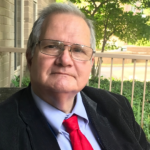
The annual celebration of Thanksgiving is one of the few remaining modern occasions where openly religious and civil sentiments intersect. Americans on the fourth Thursday of November still voice something of a social expectation that some acknowledgment of debt is owed in a world otherwise marked by entitlements. Precisely to whom that debt is owed is somewhat ever murkier, some even suggesting that it is more of a “debt of memory,” to contemplate the blessings of liberty and prosperity. But sufficient fumes still remain that most Americans invoke a beneficent God as the recipient of that gratitude.
Is there a distinctive Catholic approach to Thanksgiving? I ask that not especially as a holiday as much as a phenomenon. My answer is yes.
In his pre-papal book on the implementation of Vatican II, Sources of Renewal, the future St. John Paul II wrote about “consciousness” and “attitudes.” Consciousness is an awareness of a particular dimension of faith, an awareness that keeps that particular understanding in our sights, a lens through which we see reality. For example, Wojtyła spoke of “creation” as a consciousness: if I see the world as the intentional gift of God, that will affect how I approach it. It will engender “attitudes” about how to look at the world, both positive (“this is what it is”) and negative (“this is what it isn’t).
Let me argue that thanksgiving is a basic attitude of the Christian toward everything . . . because everything he has is a gift.
As beguiling as creation sometimes is, the Christian is aware that of everything that is, none of it has to be. Nothing had to be, and in a world beset by terrorism, war, and violence, we are also increasingly aware of the fragility of what is.
Dame Julian of Norwich captures this in one of her visions. She says that God showed her something like a walnut. Wondering why she saw this, she asked God and was made to understand that it represented “all that is.” Astonished that all the things that tempt man in the material world could be contained in such a small and fragile vessel, she was beset with the question of how it continues nevertheless to exist. God’s answer was simple: “Because I love it.”
In a series of lectures in Austria recently transcribed and published, Josef Ratzinger (prior to his papal election) spoke of creation as “the divine project.” Creation is not some thing that evolved by happenstance or even just started from a divine bang only for its own internal dynamism to take over. Creation is part of God’s plan, and since God’s plan is one, creation is inherently tied to salvation: to God’s plan to enter in loving relation with those created persons called human beings he created and, through them, to give voice to the whole cosmos to the greater glory of God.
When we realize the contingency of everything that is, and yet its—and our—existence being personally willed and wanted “because I love it,” should the human response be anything less than thanksgiving? Isn’t that response captured in the verse of an old Polish hymn (Kiedy ranne wstają zorze)?
And man, whom You without limit
Have showered with all your gifts,
Whom You have created and redeemed,
Why wouldn’t he praise You?
Our age pays at least lip service to “social justice,” yet we often forget that for St. Thomas Aquinas, religion as a virtue is part of the cardinal virtue of justice. Justice is about giving another what is owed him, his “due.” People have no greater “due” than to him from whom their existence, at its start and in its continuation at this moment, comes. At the very least, thanksgiving is what we owe him from whom we have everything.
Yet, as Preface IV for Weekdays in Ordinary Time reminds us, God has “no need of our praise, yet our desire to thank you is itself your gift. Our prayer of thanksgiving adds nothing to your greatness but makes us grow in your grace.”
As much as basic fairness requires us to acknowledge that everything we have comes from God, the truth is that even the good desire to thank him is God’s own gift. So, in giving thanks, it is not just that we discharge an obligation in justice that—when compared to the immensity of the gift—can never be commensurate. No, thanksgiving perfects our own consciousness of our created dependence on God and shapes our attitude toward life. A person who recognizes his dependency is less likely to succumb to illusions of self-sufficient grandeur, exaggerated autonomy, or defining “one’s own concept of existence, of meaning, of the universe, and of the mystery of human life.”
Nor is it just a question of acknowledging our dependency. Americans give thanks for freedom, something also ultimately rooted in creation (we are made in God’s image, one aspect of which being that we enjoy free will) and redemption (Jesus came to give us true freedom).
So a distinctly Catholic approach to Thanksgiving recognizes that the attitude the holiday seeks to embody should, in fact, be the attitude that marks a person’s approach to life every day of the year. The Church not only preaches, but practices that: she celebrates the Eucharist—a Greek word that itself means “thanksgiving”—every day of the year (but Good Friday). Each and every day, the Church invites her children to give thanks for creation and redemption. For the Church, every day is Thanksgiving.
And, again, that celebration of Thanksgiving “makes us grow in [God’s] grace.” In its votive Mass for Thanksgiving Day, the Church uses the Gospel of Luke, 17:11-19, the account of Jesus healing ten lepers, only one of whom returned to say “thank you.” “Ten were healed, were they not? Where are the other nine?”
The leper who returned to give thanks was a Samaritan—i.e., someone whom Israel considered not truly worshiping God because not truly part of the covenant. Yet—in contrast to his Jewish brothers who were part of that covenant and revelation and so should have known better—he did come to give thanks. He embodies the model of the real attitude of thanksgiving.
Having raised kids in Generations Y and Z, I had plenty of exposure to “Barney,” the purple dinosaur, who reminded children that “‘please’ and ‘thank you’—they are the magic words.” Magic not because they cast spells, but because they speak love to another person, human … or divine. Let them be a Catholic’s “magic” words every day—not just, but especially on, the fourth Thursday of November.
Happy Thanksgiving!



